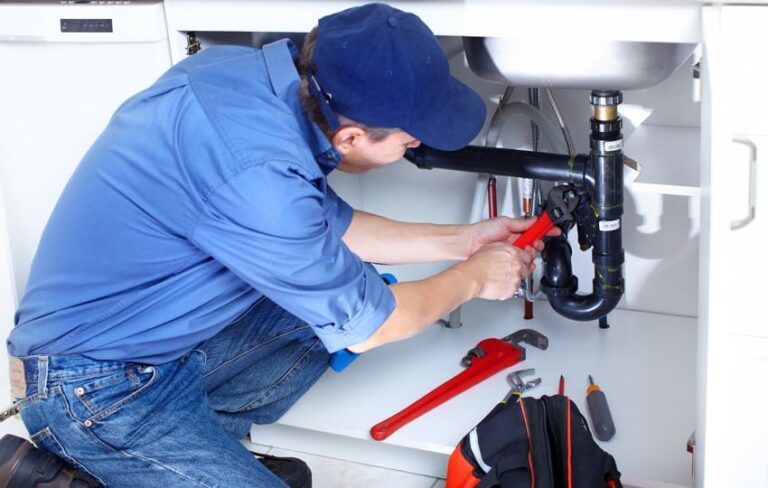Finding a good plumber shouldn’t be harder than fixing the actual plumbing problem.
But let’s be honest — it can feel that way sometimes.
Maybe your toilet’s overflowing at midnight, or that kitchen sink leak finally got serious.
You grab your phone and search for help, only to get overwhelmed by hundreds of options.
Which plumber can you trust? Who won’t charge you triple what the job’s worth? I’ve put together these ten practical tips to help you find a reliable plumber in San Antonio who’ll get the job done right the first time.
No tricks, no fancy talk — just straightforward advice from someone who’s seen it all in the home service industry.
Tips To Find The Right Plumber In San Antonio
Picking the wrong plumber can lead to bigger headaches than the original problem.
Bad plumbing work might stay hidden behind walls for years before causing major damage.
When it comes to plumbing San Antonio homes, experienced local plumbers know the city’s specific water systems, common neighborhood issues, and local building codes.
This knowledge matters more than you might think.
The right professional won’t just fix today’s problem — they’ll help prevent tomorrow’s disaster.
These tips will walk you through exactly what to look for before you hand over your keys or your credit card.
Check for Proper Licensing and Certification
Texas doesn’t mess around with plumbing regulations, and neither should you.
Every legitimate plumber in San Antonio needs a license from the Texas State Board of Plumbing Examiners.
This isn’t just a piece of paper — it means they’ve proven their skills through testing and ongoing education.
Ask to see their license number and then check it online through the state board’s website.
It takes about 30 seconds and can save you from hiring someone who learned plumbing from YouTube videos last weekend.
Different plumbing jobs might need different license types too.
Apprentices can handle basic tasks but must work under a licensed journeyman or master plumber.
For bigger jobs like whole-house repiping or gas line work, you’ll want a master plumber.
Don’t feel awkward asking about credentials.
Good plumbers are proud of their licenses and training.
If someone gets defensive or makes excuses about showing proof, that’s a huge red flag right there.
Look for Local Experience
A plumber who’s been fixing San Antonio homes for years brings something valuable that no amount of training can replace — hands-on knowledge of local issues.
They know which neighborhoods have home drinking water problems, which areas have aging cast iron pipes, and which parts of town have weird plumbing quirks.
Ask potential plumbers how long they’ve worked specifically in San Antonio.
Someone with 20 years of experience in Dallas might still need time to learn the unique challenges of San Antonio’s older neighborhoods or newer developments.
Local plumbers also tend to care more about their reputation.
They know bad work could mean running into unhappy customers at the grocery store or their kid’s soccer game.
This community connection often translates to better service and more accountability.
Look for a plumber who knows your specific area of town.
South San Antonio homes often have different plumbing challenges than those in Stone Oak or Alamo Heights.
A plumber familiar with your neighborhood might spot warning signs others would miss.
Verify Insurance and Bonding
Here’s something many people skip checking, then regret it later: insurance and bonding. Let me explain why these matter so much.
A properly insured plumber carries at least two types of coverage: liability insurance and worker’s compensation.
Liability insurance protects your property if something goes wrong during the work — like if they accidentally flood your bathroom or damage a wall.
A worker’s comp covers the plumber if they get hurt while working on your property.
Without these protections, guess who might be financially responsible for accidents or injuries? That’s right — you could be.
Bonding adds another layer of protection.
A bonded plumber has funds set aside through a third party that can compensate you if they don’t finish the job properly or disappear halfway through.
Never just take their word for it — ask to see proof of current insurance and bonding.
Legitimate companies will happily provide this information. If they hesitate or can’t produce documentation, keep looking for someone else.
Ask About Emergency Services
Plumbing problems don’t politely wait for business hours.
That backed-up sewer line or burst pipe doesn’t care if it’s Sunday night or Christmas morning.
When interviewing potential plumbers, ask clear questions about their emergency availability.
Do they offer true 24/7 service? What’s their typical response time for urgent calls? Is there an extra charge for after-hours work, and if so, how much?
Some plumbers advertise emergency services but actually use an answering service that might take hours to reach a real plumber.
Ask how their emergency process actually works.
Will you speak directly to a technician, or will your call go through dispatchers first?
Having a plumber’s information ready before an emergency happens can save you from making panic-driven decisions.
Store the contact information of a reliable emergency plumber in your phone now, not when water is pouring through your ceiling at 2 AM.
Remember that the fastest responder isn’t always your best option.
Sometimes it’s worth waiting an extra 30 minutes for a thoroughly vetted professional rather than hiring whoever can get there quickest.
Read Reviews and Ask for References
Online reviews can tell you a lot about a plumber, but you need to read them smartly.
Look beyond the star rating and actually read what customers say.
Are they mentioning the same problems repeatedly? Do they praise specific plumbers by name? Do the company’s responses to negative reviews seem reasonable?
Check multiple platforms like Google, Yelp, Nextdoor, and the Better Business Bureau.
Each attracts different types of reviewers.
Also look at how the company responds to negative feedback — do they seem defensive or solution-oriented?
Don’t stop at online reviews though.
Ask the plumber for references from customers who had similar problems to yours.
A good plumber should have happy customers willing to vouch for their work.
When talking to references, ask specific questions: Did the plumber arrive on time? Were they clean and respectful of the home? Did they explain the problem clearly? Was the final bill close to the estimate? Did the fix actually last, or did problems return?
Local neighborhood social media groups can be goldmines for plumber recommendations too.
Real neighbors sharing recent experiences often provide more trustworthy insights than anonymous online reviews.
Compare Pricing and Get Multiple Quotes
Price shopping for plumbers makes sense, but focusing only on finding the cheapest option can backfire badly.
The lowest bid might look attractive until you realize they cut corners or use cheap parts that fail quickly.
Always get at least three written estimates for any significant plumbing job.
Make sure each quote includes the same scope of work so you’re comparing apples to apples.
A detailed quote should break down parts, labor, and any potential additional costs.
Be wary of quotes that seem too low compared to others.
Ask what type of materials they plan to use — quality fixtures and pipes cost more upfront but save money long-term through fewer repairs and longer lifespans.
Understand the different pricing models plumbers use.
Some charge flat rates for standard jobs, while others bill by the hour plus materials.
Neither approach is inherently better, but knowing which method your plumber uses helps avoid surprise charges.
Good plumbers explain costs clearly and don’t pressure you with scare tactics or “today only” discounts.
They answer pricing questions patiently and provide options at different price points when possible.
Evaluate Communication and Professionalism
Pay attention to how potential plumbers communicate from your very first contact.
Did they answer your call promptly or return your message quickly? Were they patient with your questions? Could they explain technical issues in ways you understood?
That first impression often reflects how the entire service experience will go.
A plumber who’s attentive and clear during the estimate phase is more likely to communicate well throughout the project.
Watch for red flags like showing up late to give estimates, appearing disorganized, or being vague about timelines.
These early warning signs rarely improve once work begins.
Professional plumbers should look the part too.
They arrive in clean, branded vehicles, wear uniforms or appropriate work clothes, use shoe covers to protect your home, floors, and clean up after themselves.
These details reflect their overall attention to quality.
Notice how they treat your home. Do they put down drop cloths? Do they ask before entering certain rooms? Small courtesies often indicate a plumber who takes pride in customer service, not just technical skills.
Ask About Warranties and Guarantees
A confident plumber stands behind their work with clear warranties.
Before hiring anyone, ask exactly what guarantees they offer and get them in writing.
Quality plumbing companies typically offer at least a one-year warranty on labor, while parts might carry manufacturer warranties of varying lengths.
Some premium plumbers extend labor warranties to two years or more, showing their confidence in lasting repairs.
Make sure you understand what the warranty covers and what might void it.
For example, some warranties become invalid if anyone else works on that plumbing system later, or if the issue was caused by homeowner neglect.
The warranty should specify what happens if something fails within the covered period.
Will they just fix the exact same issue, or will they cover any resulting damage too? How quickly will they respond to warranty claims?
Keep all warranty documentation, receipts, and the original work order in a safe place.
Taking photos of completed work before walls are closed up can also help document what was done if warranty questions arise later.
Check Specializations and Services Offered
Not all plumbers specialize in the same things.
Some focus on new construction, others on repairs, and some might specialize in specific systems like gas lines, water heaters, or sewer work.
For the best results, match your specific plumbing problem with a plumber who specializes in that area.
A jack-of-all-trades might be fine for simple repairs, but you probably want a sewer specialist for a major sewer line replacement.
Ask potential plumbers what percentage of their business involves work like yours.
If they mainly install new construction but you need someone to troubleshoot weird noises in your old pipes, they might not be your best match.
Some plumbing companies offer complementary services that could be convenient, like drain cleaning, water treatment system installation, or backflow testing.
Knowing their full service range helps you decide if they could be a good long-term plumbing partner for all your home’s needs.
Technology matters too.
Plumbers who invest in modern equipment like video pipe inspection cameras, hydro-jetting equipment, or leak detection tools can often diagnose problems more accurately and solve them less invasively.
Trust Your Instincts
After checking credentials, reading reviews, and comparing quotes, don’t ignore that gut feeling about a plumber.
Your instincts often pick up on subtle cues your conscious mind might miss.
If something feels off during your initial conversations — maybe they seem distracted, rush through explanations, or make you uncomfortable in any way — it’s okay to keep looking.
You’re inviting this person into your home, often during stressful situations.
Feeling completely comfortable with them matters.
Notice how they talk about previous customers or jobs.
Plumbers who speak respectfully about past work and avoid trash-talking competitors typically bring that same professionalism to your project.
Remember that you’re hiring both technical skills and customer service.
The best plumber for you combines both — they fix your problem correctly while also making the experience as stress-free as possible.
Your home is probably your biggest investment.
The plumber you choose helps protect that investment.
Taking your time to find the right match pays off through quality work, fair pricing, and peace of mind.
Conclusion
Finding a trustworthy plumber in San Antonio takes a bit of homework, but it’s time well spent.
The right plumber becomes a valuable ally in maintaining your home, potentially saving you thousands in preventing damage over the years.
Keep this guide handy before plumbing emergencies strike so you can make clear-headed decisions when water starts spraying.
Remember that building a relationship with a reliable plumber before major problems happen gives you someone to call who already knows your home’s systems when urgent situations arise.
Your future self will thank you for taking the time now to find a plumbing professional you can count on for years to come.



